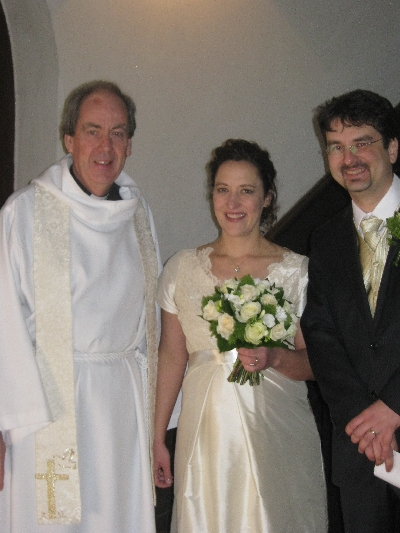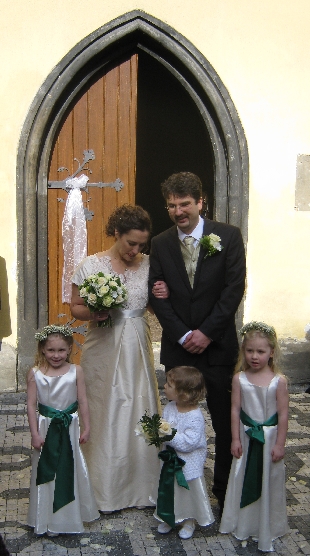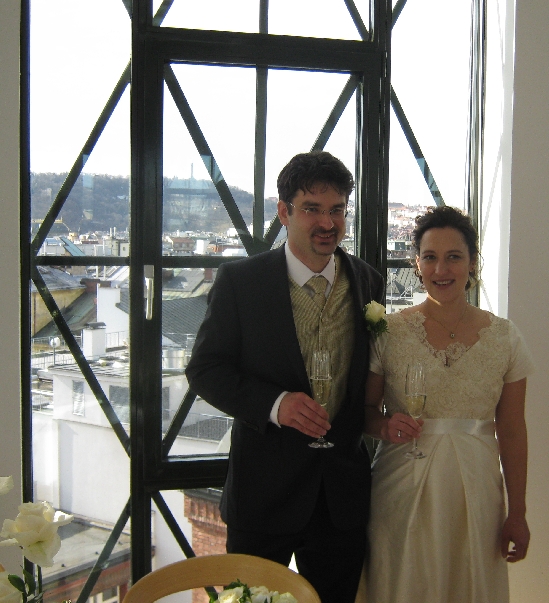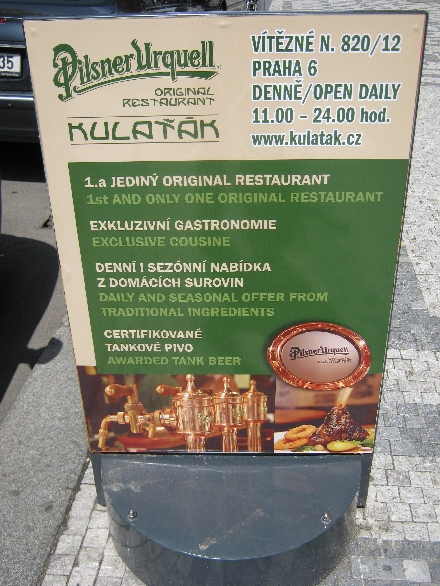
Just over four years ago, on 19th September 2008, Sybille and I arrived in Prague to begin a new chapter in our life together – a Brit and a German living as an expatriate married couple in the Czech Republic. This blog, which I started writing and publishing just over four months later, is as I state in, About me – including two photos, ‘….my attempt to reflect on ministering to English-speakers from a variety of backgrounds and countries, and living as an expat myself in this fascinating city and country’.
As this fourth anniversary of our expatriate existence recently approached, I started reflecting on what makes for living successfully in another country that is not your own. This post is the result of those reflections, written out of our own personal experience and also out of listening to and observing other English-speaking expats who have crossed my path here in Prague these past four years.
As I’ve been reflecting these recent weeks, the words of the well-known ‘Prayer of Serenity’ have come to mind as being an excellent summation of the correct attitude to adopt when seeking to make a success of expat living.
God grant me the serenity
to accept the things I cannot change;
courage to change the things I can;
and wisdom to know the difference.
Let me explain in greater detail what I mean.
When Czech people get talking to Sybille and I and discover that we are not tourists but actually live here, their next question is nearly always, “Do you like living in the Czech Republic?” Our reply is always very positive, with two exceptions – how far away we are from the sea and our difficulties with the Czech language. But these are two things that we knew about before we ever moved to Prague and are things that we cannot change – we must and do accept them.
It is no use moving to another country and expecting it to be exactly like your own country that you’ve just left. Whilst there is nothing wrong in being proud of where you originate from, you cannot expect your city or country of adoption to replicate everything that you previously enjoyed in your home city and country. Nor can you expect everything you were able to purchase in the shops back in your home country, to be freely available in the shops and supermarkets of your new country of residence.
Friends and family before coming to visit us in Prague, often ask whether there is anything they can bring from the UK that we cannot get here. The reality is that, having Tesco supermarkets and several branches of Marks & Spencer, means most items any Brit might want, can be obtained here without too much difficulty. And to be a successful expat should and does mean learning to live without certain things that you previously always regarded as essential, or finding and accepting something else as a suitable substitute.
Likewise, for better or worse, McDonald’s, Kentucky Fried Chicken, Burger King and Starbucks, all have numerous outlets here – there is hardly a lack of familiar globalised fast food and drink. Yet I do hear occasional complaints about the absence of a certain chain of ice cream parlours or the inability to buy ‘dunking chocolate donuts’ from a particular store. If life really is impossible without having ready access to such things, don’t even start considering leaving home in the first place. Learn to accept the things you cannot change.
Regular readers of this blog will know that I do write about all the things I enjoy by living in Prague and the wider Czech Republic. But I also do on occasions, complain about certain things that I don’t like. Seeking to be true to the third line of the Prayer of Serenity, ‘courage to change the things I can’, I do so because they are things that I believe can and should be changed.
One of my regular themes is the many impenetrable and absurd aspects of Czech bureaucracy that I often encounter. Most Czech people I talk with agree with me wholeheartedly about this matter! Associated with this issue, is the way Sybille and I are treated sometimes by the various Czech authorities, simply because we are foreigners.
The Czech Republic has benefited enormously, economically and in many other ways, since it became part of the EU in May 2004. But with the benefits come also responsibilities, one of which is to treat nationals of other EU member states in exactly the same way as their own citizens. So I will continue to highlight occasions when that doesn’t happen because it is something that both needs and has to change.
Of course, there are times when it isn’t worth making a fuss or it is easier to find a way of sidestepping the problem. That is when one really needs, ‘wisdom to know the difference’. And I don’t always get that right. But I am grateful for friends who have offered their wisdom in helping me deal with certain issues so that I hopefully have learned when to challenge and when to just accept that it is something I cannot change.
There are two other issues that are important to recognise and consider if you want to make the expat life a success. The first is the frequency with which you pay return visits to your country of origin. The second is what effort you make as an English-speaker, to learn to speak the language of your adopted country.
In the four years we have lived in the Czech Republic, I have been back to the UK just three times. As far as I am concerned, Prague is my home for the immediate future. When we have holidays, we normally take advantage of our location and further explore the Czech Republic or near neighbouring countries.
Whilst visiting ‘home’ once or possibly twice a year, is not unreasonable, going there nearly every other weekend as I’ve known some Brits do from here in Prague, totally defeats any reason for living and working abroad in the first place. It gives very little opportunity to get to know and settle into the culture and way of life of where you are supposedly living and working. Those who do this, usually return to their home countries on a permanent basis, in a relatively short space of time.
Whilst Sybille and I believe we have made a success of our expat life, the one area where we know we have all but failed is with the Czech language. For to really settle in another country, you do need to be able to speak the language of the people. Whilst we can read a Czech menu, place our order in a bar-restaurant, and see simple signs and understand what they mean, there is no way we can yet have a meaningful conversation in Czech.
There are numerous reasons for our failure in this area. My job is to minister to English-speakers living here. Sybille works on the internet either in English or her native German. Between us, we have the two languages that many Czech people can speak. Older educated Czechs often speak German and when visiting parts of the country nearer the German or Austrian border, German is widely spoken. Most younger educated Czechs speak English and welcome the opportunity to improve it with a native speaker. And Czech is horribly difficult – what other language has four genders and seven cases?
As always, I welcome feedback, especially from other expats or former expats. And please also forgive some of my more vague generalisations in this post – as I originally compiled it over a month ago, there were some specific examples. But I took the wise advice of my best critic & edited them out 🙂







